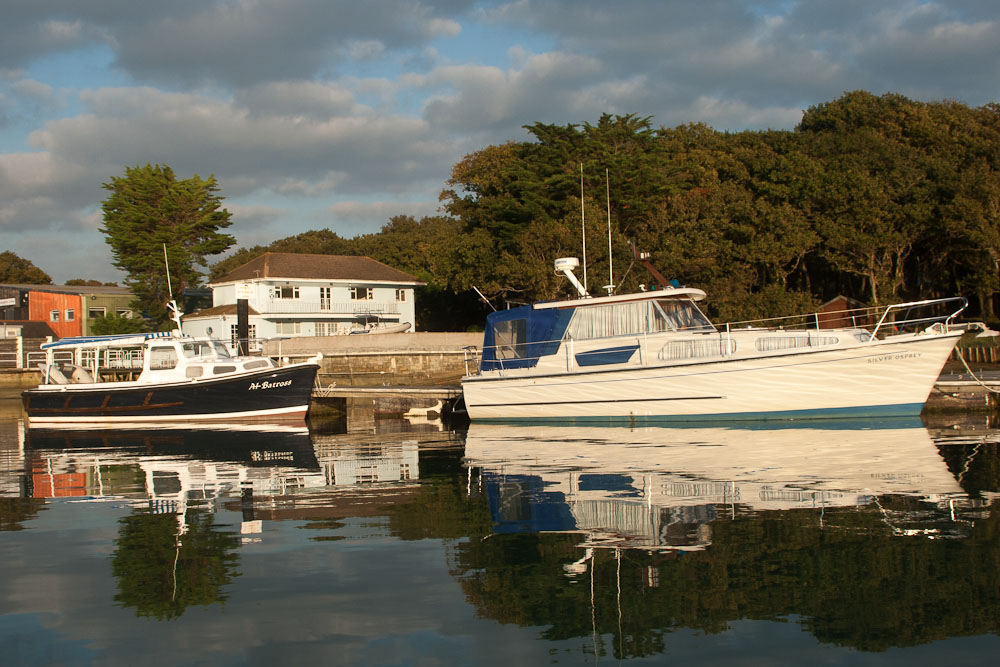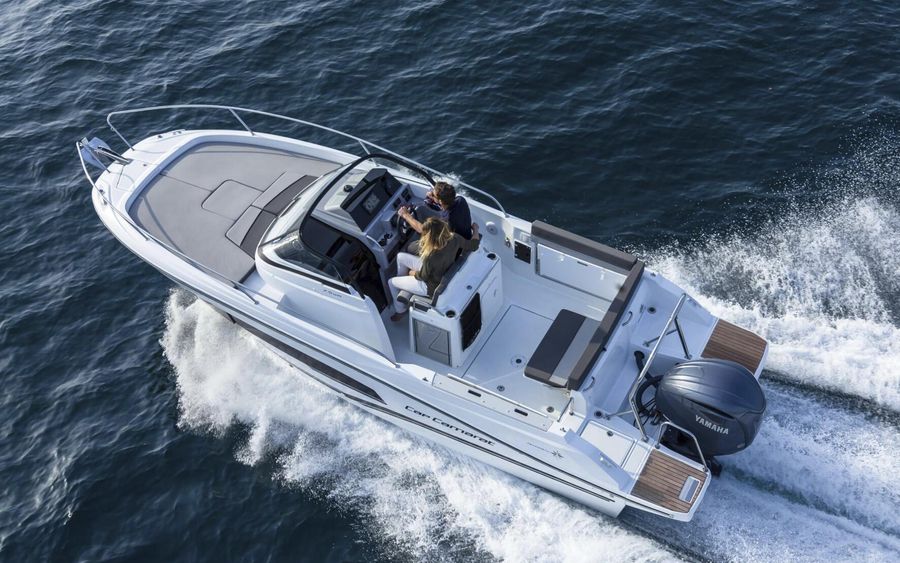Brexit has brought some uncertainty to boat-buying. With its exit from the EU, the UK is now subject to extra VAT treatment for pleasure craft in European waters. That's not to mention the many new immigration rules that affect sustained sailing. Here we make sense of the post-Brexit position for boat buyers, owners and enthusiasts.
The new sailing normal
The Brexit transition period ended on 31 December 2020. With it, the right to free movement, work and leisure has changed. For boat buyers and owners, it holds tax implications due to the introduction of Customs Union barriers. For average UK tourists who enjoy sailing in the Mediterranean, little is affected. You can travel to the EU for a total of 90 days trouble-free, rent a boat and enjoy your time on the sparkling Med. But what about boat-buyers and owners?
For those used to sailing with their own yachts in Europe, drastic change is afoot. Buying a boat in Europe after Brexit, in particular, will be affected by fresh VAT implications. Boats flagged in the UK or EU were always subject to tax in their respective regions. Now that the UK is no longer part of the EU, boat owners need to be careful not to be caught out by new charges when travelling between the two. With these tricky new rules and regulations, you'll have to think long and hard about whether buying a boat in Europe is for you or whether it's better to stick to the UK.
Here are our top takeaway points for potential buyers.
Can I buy a boat in Europe after Brexit?
You can buy a boat in the EU problem-free. The issue is where you'll flag it and keep it. Provided you're buying a used boat in Europe with proof of EU VAT paid, you'll have no problems during its time in the EU. New boats, too, will have VAT declared on the Bill of Sale. As long as EU-VAT is paid, you're good to go.
You can keep your vessel in the EU indefinitely as long as your VAT is paid, no matter your citizenship. VAT rules only apply to the vessel, not to the person behind it. The problem, of course, is that new Schengen restrictions on UK tourists mean that owners can stay in the EU for only 90 days in a 180 day period. That's realistically just 6 months in a year in intermittent 3 month periods. That means leaving your boat in the EU for this time if that's where you're mooring it. What's more, boat owners must carry VAT status evidence onboard at all times and produce it when and where customs officials request it. That includes all evidence of paid VAT and logs of where the boat has been.
Tip: It's always good to discuss these issues with a broker. They can recommend solutions that are followed by fellow European boat buyers.

Owners can only stay in the EU for only 90 days in a 180 day period.Photo: Christian Lue
Can you bring your Europe-bought boat back to the UK?
The main issue with Brexit for boat buyers is moving the vessel. If you buy a boat in the EU and bring it back to the UK, you are liable to pay extra VAT. If you purchase a boat in the EU for specific export to the UK, you can keep it for 30 days VAT-free in EU waters. This realistically applies only to brand new boats. As soon as you arrive in UK waters, that VAT is due. As VAT was already paid on the majority of boat purchases in Europe, you are going to be double-charged when exporting to the UK.
What's more, one huge impact of leaving the EU is that UK-flagged boats now lose their VAT-paid status if the vessel has been out of UK waters for three years. If a boat is kept out of the UK after this period of time, it will be liable for a second VAT charge based on the current market value of the boat.
HMRC did introduce a Returned Goods Relief (RGR) on British-owned vessels returned to the UK, but this won't apply to newly purchased boats in the EU. Under current RGR guidance, a UK-flagged boat must be sailed back to the UK by 30 June 2022 to avoid being charged additional VAT. Likewise, if you want to return your boat to the EU once more after that, VAT will be required upon entering EU waters. You'll have to make strict decisions on where, when and how you'll moor your vessel moving forward.
Tip: If you're travelling to and from EU destinations, good paperwork organisation is a must. Don't get caught out by poor record-keeping‚ it can cost a hefty fine.
What kind of VAT am I liable to pay?
Simply put, all private vessels owned by EU residents used or kept in the EU must have VAT paid. The same goes for boats in the UK. This is paid when the boat or yacht is first sold or imported. For used boat purchases, the previous owner(s) will have paid the VAT and provide the documentation. VAT is also charged when boats cruise in the EU or UK for a prolonged period of time. In this case, it's up to the current owner to file and provide the correct paperwork.
VAT on boats in both the UK and EU is 20%. This is where new Brexit boat VAT charges come into play. New boat owners run the risk of paying additional VAT on boats outside the UK when sailing into British shores. Previous EU legislation on freedom of movement meant that boat owners could travel throughout the region without any concern for VAT liability. Boat and yacht VAT status after Brexit has changed. Now boats and all other pleasure craft have lost their status as Union Goods.
Moving a boat from the UK to the EU and vice versa is now subject to a VAT charge. What's more, all boats built after 1 January 1985 should have had VAT paid by the first owner or importer, and evidence of this should come in the form of a VAT certificate or invoice.
Tip: You pay VAT on where your boat is based. Don't fall for extra charges, follow temporary importation rules to avoid penalties.
Travelling in Europe with a non-EU-registered boat
So you've bought a boat and registered it in the UK. VAT has been paid in the UK, and you're travelling to Europe. What are your options? The most convenient benefit of leaving the EU is Temporary Importation (TI).
British boat owners can keep a private boat in EU waters without paying VAT on import by using the Temporary Importation scheme. This allows you to keep your boat in the EU for an 18 month period without paying VAT on your vessel. Once the 18 months are complete, your boat only needs to be taken out of EU waters for 24 hours. After that, the TI VAT cycle starts again for another 18 months.
Right now, there are plenty of workarounds to these new travel requirements. You can travel to any non-Schengen areas, like Turkey, Gibraltar, Montenegro, Morocco, Tunisia or Croatia to reset your 18-month clock.
Tip: If you're making the most out of TI rules, transit logs and evidence of time spend outside the EU is needed during this time. You'll need clear documentation to avoid strict and punishing immigration rules.

You can travel to any non-Schengen areas like Croatia to reset your 18-month clock. Photo: Matthias Mullie
Travelling in the UK with a non-UK registered boat
Just as travel in Europe has changed after Brexit, so has travel to the UK. If you buy a boat in the EU and sail it back to the UK, you'll be subject to a VAT import charge. If you are entering the UK, you must also fly the 'Q' flag until you've reported to customs officials. Here, you must report the VAT status of your vessel and deal with any other import-related issues. Just like travelling to the EU, vessels can apply for temporary importation to sail to UK shores.
Tip: Individual EU nations provide their own long-stay visas, so it's possible to bypass the Schengen limitations.
Is it worth buying a boat in Europe after Brexit?
This is where context and circumstance matter. While it's perfectly sensible to make use of exceptional deals and buy a boat in the EU to keep it there, you're only allowed to sail for 3 months at a time. New rules mean that you cannot stay in the EU for longer than 90 days in a 180 day period. To navigate these tricky immigration laws can be too much hassle for some. It all depends on just where you're keeping your boat and how often you cruise.
For many, Temporary Importation will suit them just fine. You can enjoy easy travel between Schengen and non-Schengen shores with ease. For now, it may be worth holding off on buying a European boat while prospects of new visas and boat-buying legislation are being lobbied by allies like the Royal Yachting Association. For more tips on buying a boat, set anchor here for dependable advice.
Main image: axopar.fi


